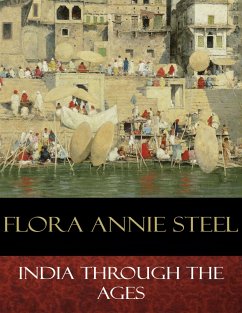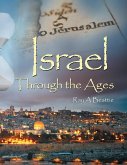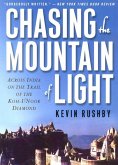India Through the Ages: A Popular and Picturesque History of Hindustan by Flora Annie Steel.
A history, above all one which claims to hold no original research, but simply to be a compilation of the work of others, needs no introduction save the compiler's thanks to many who have been consulted.
One word, however, may be said regarding the only accent used--the circumflex.
This is put always on the tone of stress; that is to say, on the syllable to be accented. Thus Mâlwa, Ambêr, Jeysulmêr, Himâlya, Vizigapatâm. Where no accent appears the syllables are of equal value.
Hindustan is derived from the Modern Persian word Hindu. In Old Persian, the region beyond the Indus River was referred to as Hindus, hence Modern Persian Hind, Hindu. This combined with the Iranian suffix-stan results in Hindustan, "land of the Indus". 1st century BCE, the term "Hein-tu" was used by Chinese. Term came into common use under the Mughals who referred to their dominion, centered on Delhi, as 'Hindustan'.
A history, above all one which claims to hold no original research, but simply to be a compilation of the work of others, needs no introduction save the compiler's thanks to many who have been consulted.
One word, however, may be said regarding the only accent used--the circumflex.
This is put always on the tone of stress; that is to say, on the syllable to be accented. Thus Mâlwa, Ambêr, Jeysulmêr, Himâlya, Vizigapatâm. Where no accent appears the syllables are of equal value.
Hindustan is derived from the Modern Persian word Hindu. In Old Persian, the region beyond the Indus River was referred to as Hindus, hence Modern Persian Hind, Hindu. This combined with the Iranian suffix-stan results in Hindustan, "land of the Indus". 1st century BCE, the term "Hein-tu" was used by Chinese. Term came into common use under the Mughals who referred to their dominion, centered on Delhi, as 'Hindustan'.









